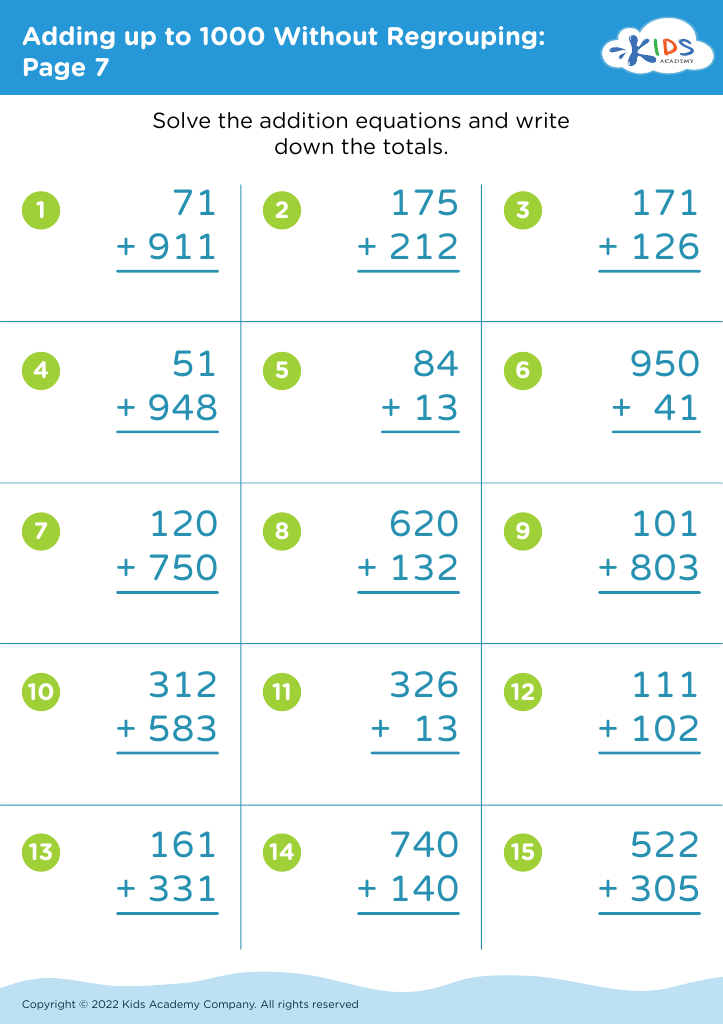Fraction comparison Adding up to 1000 Without Regrouping Worksheets for Ages 6-8
4 filtered results
-
From - To
Unlock your child's mathematical potential with our Fraction Comparison and Adding up to 1000 Without Regrouping Worksheets, designed for ages 6-8. These engaging, skill-enhancing worksheets help young learners compare fractions and master addition up to 1000, all without regrouping. Packed with vibrant illustrations and clear instructions, our worksheets simplify complex concepts, making math fun and accessible. Use them to build foundational math skills, boost confidence, and nurture a love for learning. Ideal for classroom use or extra practice at home, these worksheets are a fantastic resource for educators and parents alike. Start your child’s math success journey today!
Parents and teachers should care about providing opportunities for children ages 6-8 to practice fraction comparison and adding up to 1000 without regrouping due to several reasons connected with cognitive development and educational progress.
Firstly, introducing fraction comparisons at an early age helps children develop a strong foundation in understanding parts of a whole, which is critical for later math concepts, such as division, percentages, and algebra. At ages 6-8, children are beginning to grasp more abstract ideas; learning fractions establishes a groundwork for advanced mathematical thinking.
Second, exercises in adding up to 1000 without regrouping help reinforce basic arithmetic skills, crucial for everyday activities and for building confidence in mathematics. Mastering addition up to this range ensures quick mental calculations, enhancing problem-solving abilities and logical thinking.
Moreover, these activities foster perseverance, attention to detail, and analytical skills that are transferable beyond mathematics. Such skills are beneficial not only in academic settings but in daily life situations, where strong analytical abilities are indispensable.
Finally, building these foundational skills early on encourages a positive attitude towards learning and eases the transition to more complex topics in later grades. Hence, prioritizing these areas offers long-term educational benefits and equips children with essential lifelong skills.




















